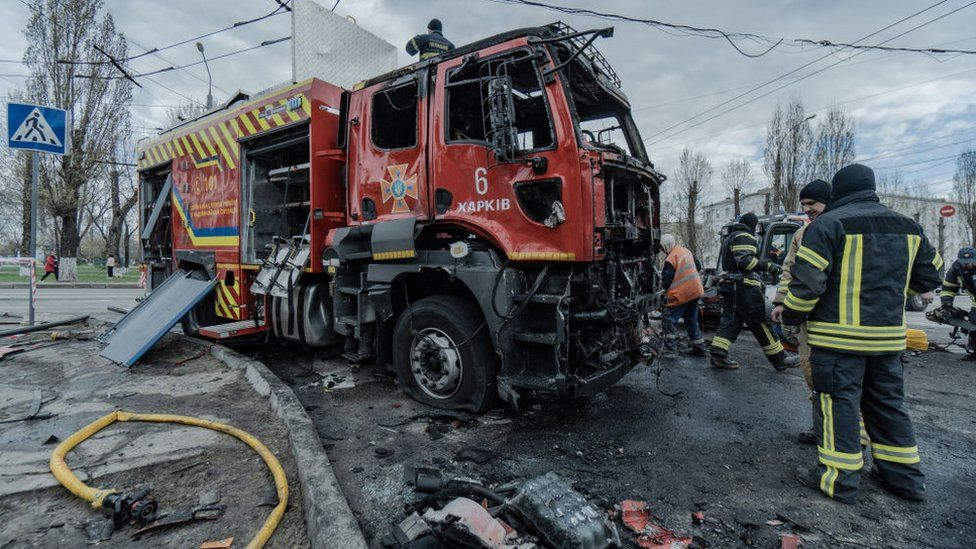During the night of April 3rd, a swarm of Russian drones launched an assault on Kharkiv, situated in Ukraine’s northeast, marking yet another relentless attack on the nation’s second-largest city since the onset of Russia’s full-scale invasion. This particular assault proved exceptionally devastating, as rescue personnel responding to the scene encountered a second strike, resulting in the loss of three lives.
A similar tragic scenario unfolded the following Friday in Zaporizhzhia, a significant city in Ukraine’s southeast, when Russian missiles struck. Once again, as rescuers and journalists hurried to aid the injured, two additional missiles struck, claiming four lives and leaving over 20 wounded, including two local journalists.
These attacks, both in Kharkiv and Zaporizhzhia, employed a ruthless tactic known as the “double-tap,” whereby an initial airstrike is followed by a subsequent attack, targeting rescuers endeavoring to assist the wounded. While Russia has employed such repeat attacks previously, Ukrainian President Volodymyr Zelensky condemned them as “despicable acts of cowardice.”
Ukrainian authorities have noted a concerning escalation in the frequency of these attacks. Oleh Synehubov, the governor of Kharkiv region, asserted that Russia has begun incorporating repeat strikes on targets both day and night, deliberately targeting civilian rescuers and other responders.
The United Nations Office for the Coordination of Humanitarian Affairs decried this pattern of double-tap strikes as “cruel” and “unconscionable,” urging for their cessation. Rescuers from Ukraine’s State Emergencies Service DSNS have become increasingly vulnerable to these attacks, with spokesman Oleksandr Khorunzhy condemning them as “utterly immoral” and highlighting the toll on both rescuers and civilians.
The DSNS reports that since Russia’s full-scale invasion in February 2022, 91 rescuers have been killed and over 340 injured. Journalist Kira Oves, injured in the Zaporizhzhia attack, recounted the harrowing experience, underscoring the unpredictability and brutality of the double-tap tactic.
These attacks not only aim to undermine Ukrainian resilience but also instill fear, potentially deterring future rescue efforts. However, analysts point out the strategic rationale behind Russia’s tactics, targeting high-profile personnel congregating to aid victims, thereby disrupting emergency response efforts and amplifying the impact of their assaults.
Moreover, such attacks on rescue workers likely constitute war crimes, according to analysts like Karolina Hird of the Institute for the Study of War, highlighting the egregious disregard for humanitarian norms exhibited by the perpetrators.

